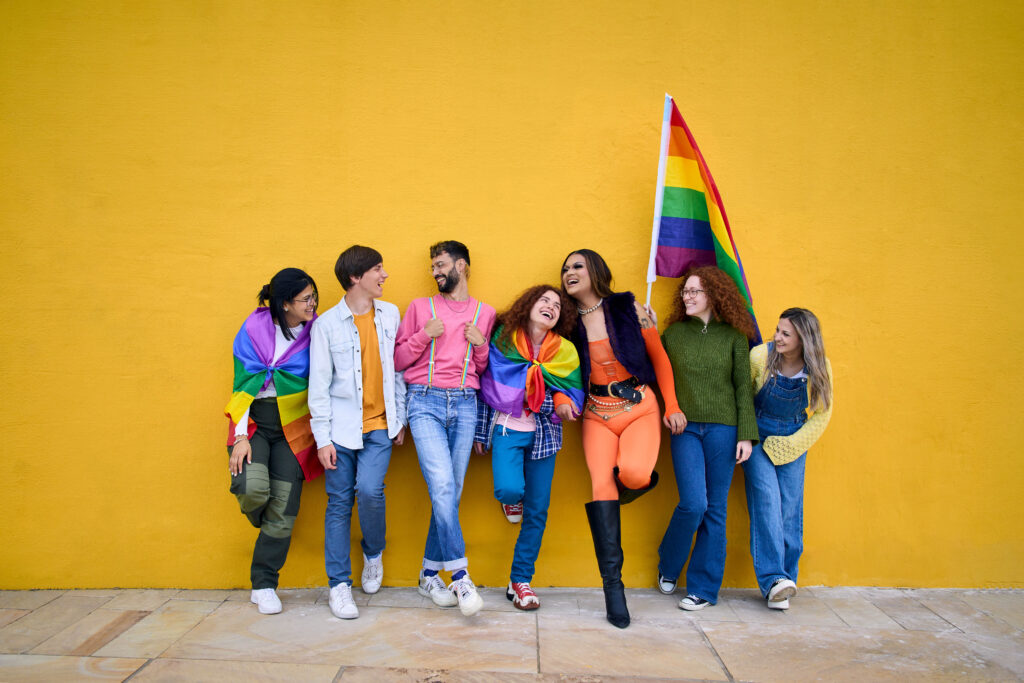Pride Month is a vibrant celebration of identities and a crucial platform for advocating equality within the LGBTQ+ community. However, it’s imperative to recognize that amidst the festivities, there are pressing mental health issues that need attention and support.
Understanding the Challenges
The statistics paint a stark picture of the mental health disparities faced by the LGBTQ+ community, particularly among youth and transgender individuals. LGBTQ+ teens are six times more likely to experience symptoms of depression than their non-LGBTQ+ identifying peers. Furthermore, LGBTQ+ youth are more than twice as likely to feel suicidal and more than four times as likely to attempt suicide compared to heterosexual youth.
The challenges extend beyond adolescence, with transgender adults experiencing alarming rates of suicidal ideation. Forty-eight percent of transgender adults reported considering suicide in the last year, a staggering figure compared to the mere four percent of the overall US population.
These statistics underscore the urgent need for targeted support and intervention to address the mental health needs of LGBTQ+ individuals. Discrimination, prejudice, and societal stigma contribute significantly to these alarming rates, fostering environments of hostility and exclusion. In addition to facing external pressures, LGBTQ+ individuals often grapple with internal struggles related to self-acceptance and identity affirmation.
Familial rejection and strained relationships further compound these challenges, leaving many individuals feeling isolated and unsupported. Despite progress in recognizing and affirming diverse sexual orientations and gender identities, access to culturally competent mental health care remains a significant barrier for many LGBTQ+ individuals.
What Can We Do to Address These Challenges?
Addressing the mental health challenges faced by the LGBTQ+ community requires a concerted effort from individuals, communities, and organizations. Here are a few actions we can take to improve the mental health of the LGBTQ+ community.
1. Education and Awareness: Implement comprehensive initiatives to educate and raise awareness about LGBTQ+ mental health, combating stigma and misinformation.
2. Culturally Competent Care: Provide specialized training for healthcare providers to offer LGBTQ+ affirmative and non-judgmental support, ensuring access to quality mental health services.
3. Building Supportive Communities: Establish LGBTQ+ support groups and community organizations to create safe spaces for validation, acceptance, and mutual support.
4. Advocacy for Policy Change: Advocate for policies that prioritize equality, non-discrimination, and access to healthcare services for LGBTQ+ individuals while addressing systemic barriers.
5. Prioritizing Self-Care: Encourage self-care strategies such as mindfulness, self-compassion, and seeking support from LGBTQ+ affirmative therapists or counselors to promote mental well-being.
Mental Health Resources for the LGTBQ+ Community
The LGBTQ+ community has access to a wide range of mental health resources through Comprehensive Healthcare. All of the services provided through Comprehensive Healthcare are designed to be culturally competent and trauma-informed, ensuring they are a safe and welcoming space for individuals who identify as LGBTQ+. Comprehensive Healthcare provides therapy, support groups, crisis outreach services, and substance use disorder services that respect and address the unique needs of the LGBTQ+ community, affirming our commitment to inclusive and compassionate care for all.
Other resources like The Trevor Project provide 24/7 support via phone, text, or online messaging. The National Queer and Trans Therapists of Color Network focuses on transforming mental health for queer and trans people of color (QTPoC). In addition, organizations like GLSEN support LGBTQ+-inclusive education, while the Human Rights Campaign provides a wealth of information and resources for the LGBTQ+ community and allies, covering topics from individual identities to workplace resources. Specific guides and checklists are available for LGBTQ youth, school counselors, educators, and school social workers, offering practical advice and resources for supporting LGBTQ+ individuals.
We encourage everyone, regardless of their identity, to seek help if they are struggling with mental health. These resources support LGBTQ+ individuals in prioritizing their mental well-being and accessing the necessary support to live authentically and thrive. Don’t hesitate to seek the care you need.
Celebrating Resilience and Pride:
Despite the challenges they face, LGBTQ+ individuals demonstrate remarkable resilience and courage in embracing their identities. This Pride Month, Comprehensive Healthcare celebrates the diversity and strength of the LGBTQ+ community while reaffirming our commitment to supporting mental health and well-being for all. You can join them at these local Pride events: Yakima Pride and the Walla Walla Pride Festival. Pride Month serves as a poignant reminder that the fight for equality encompasses visibility and acceptance and the fundamental right to mental health and well-being. By acknowledging the intersection of LGBTQ+ identities and mental health, we can create inclusive, affirming communities where everyone can thrive authentically.



